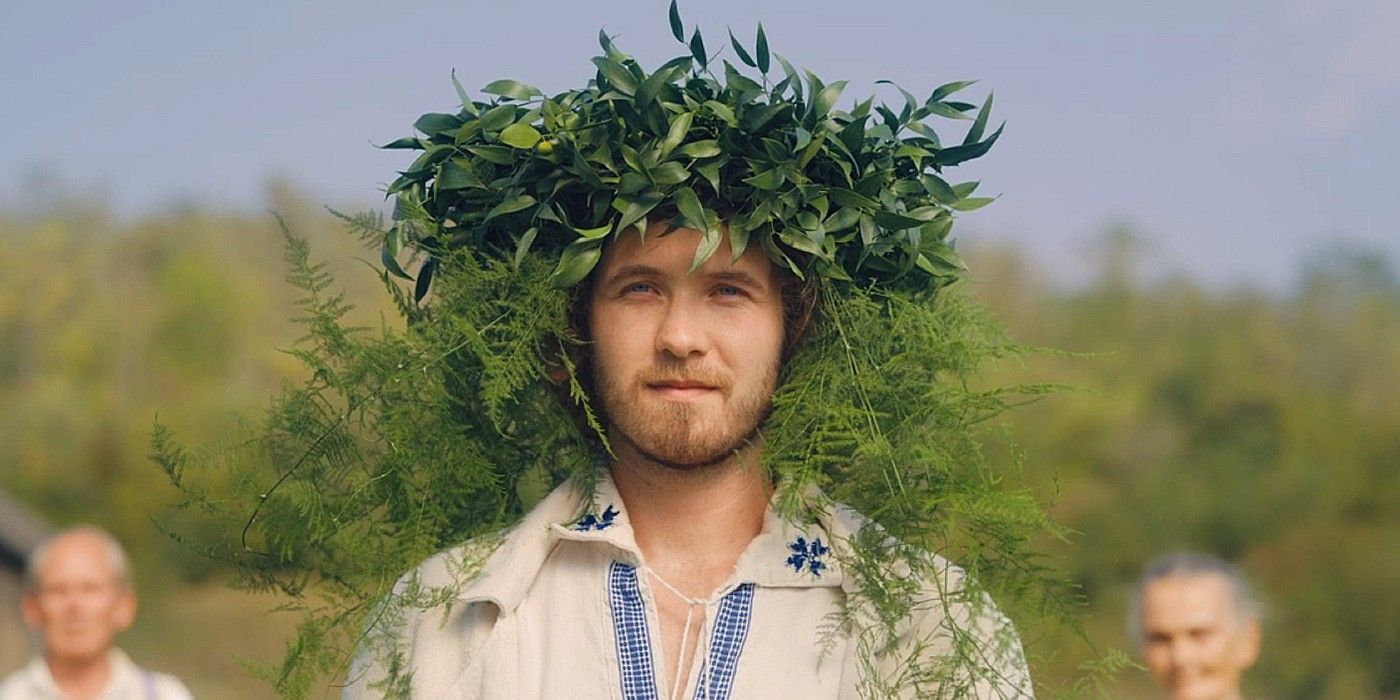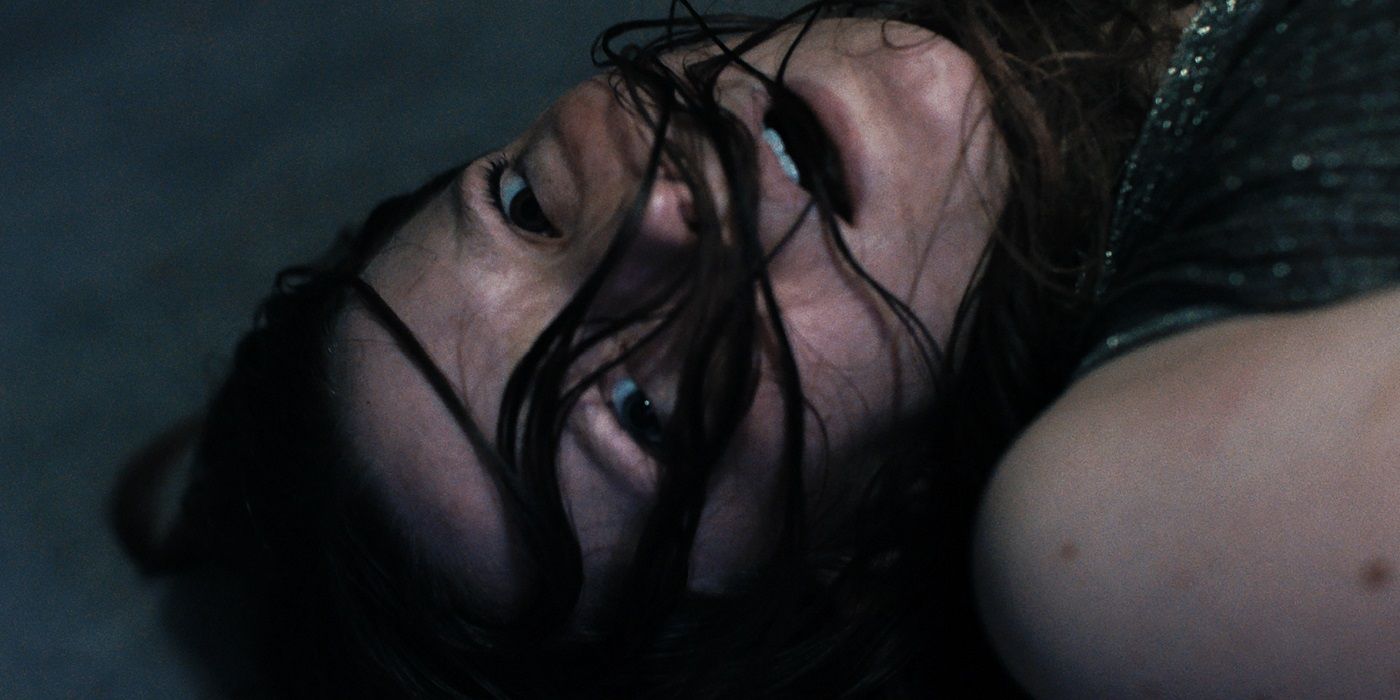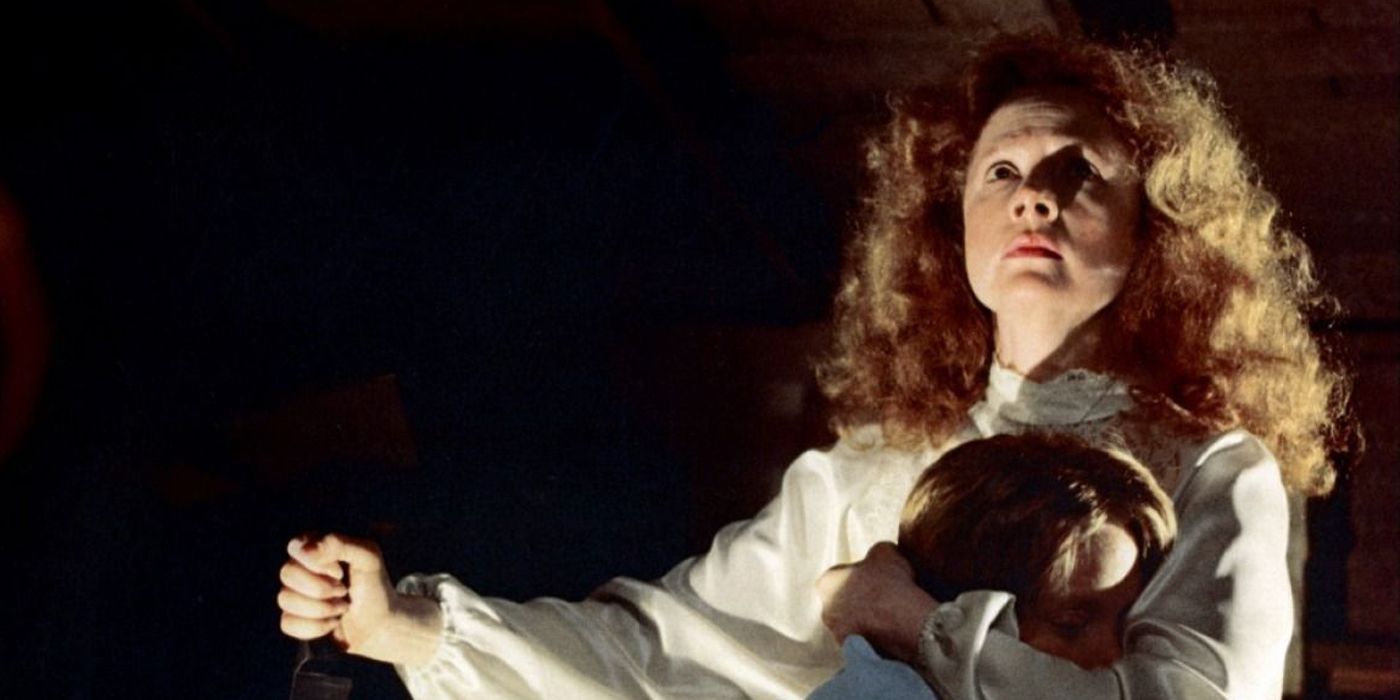Content Warning: The following article contains discussions/depictions of self-harm and abuse.The upcoming horror movie Prey For The Devil focuses on a young nun who undergoes training in exorcising demons. For some, religion is seen as a way to better understand the world. However, in horror movies, some people take their fundamentalism too far, and when these zealots get too far, they can become outright terrifying. This is a trope that the horror genre loves to play with.
From subtle bigotry to downright demonic rituals, these zealots showcase what happens when people throw themselves to their gods for all the wrong reasons.
William (The Witch)
The Witch follows a Puritan family who has been exiled from their community for the extremism of their father. William, the patriarch of the family, is a harsh fundamentalist who believed suffering to be a necessity for reward. His ego and puritanism are what spurs the entire story.
Although he is not the “villain” of the movie, William's pride, toxic masculinity, and religious puritanism prevent him from simply apologizing or compromising with the community. So while he isn’t an actively malicious force, his actions are what seal his family’s fate.
Lord Summerisle (The Wicker Man)
As the seemingly benevolent Lord Summerisle, Christopher Lee perfectly portrays the charismatic and warm aura that every cult leader uses to hide their true nature. He is the perfect foil to the devout and stoic Sergeant Howie, who is genuinely good underneath the abrasiveness.
Lord Summerisle in 1973’s The Wicker Man is a great representation of how cults can look “reasonable” to a closed community. Although Howie is both morally and logically correct in his accusations, he does so in a way that scares the community. Lord Summerisle tells the people exactly what they want to hear. The fact that his unsettling beliefs are delivered so warmly makes it all the more unsettling.
Pelle (Midsommar)
Pelle is a charismatic young man part of the group that visits the Hårga, and the person responsible for introducing the college group to the cult. What makes him so terrifying is how subtle he is.
Midsommar explores the all too real way that cultists brainwash recruits, which is through false kindness. It’s unclear how sincere his empathy for Dani is but what is definitely known, however, is that he led his “friends” to an obscure cult, knowing full well what Dani and her group’s terrifying fates would be.
Maud (Saint Maud)
Not all religious zealots are terrifying because of what they do to other people. Sometimes, they’re scary because of what they do to themselves. Maud, a caretaker for the terminally ill, truly believes that she has direct communication with God. Throughout Saint Maud, it’s purposefully vague how true that is.
Maud's isolation means her detachment from reality remained unchecked, and the extent of her self-harm is gruesome and unsettling. Maud is the other side of the coin for people with strong faith. Sometimes, their faith wanders firmly into harmful self-delusion.
Dr. Joseph (The Invitation)
Dr. Joseph is a cult leader and is about as disturbing as most people expect cult leaders to be. The Invitation is not just a title, but the very name of his cult. It’s a name that beckons, and when the unfortunate souls come to them for answers, they will only find blood.
Dr. Joseph showcases how an intellectual man is capable of manipulating the emotionally vulnerable to do his will. Once the true nature of what “the invitation” is gets revealed, the viewer is only sickened by how the cult gaslights its followers. It’s especially more relevant in the modern day, where communities are formed faster than ever before. Fascinatingly, he's not present much in the movie, but the atrocities his cult commits in his name speak for themselves.
Mrs. Carmody (The Mist)
Mrs. Carmody was once a normal if a bit uptight, middle-aged woman who was seemingly harmless. When the mist arrives in the small town, neither the viewers nor the townspeople would have expected her gradual yet diabolical transformation. Although there are monsters outside, Mrs. Carmody represents the monster that resides within humanity.
Through a mixture of fear and anger, Mrs. Carmody has convinced herself that she is a prophet of God. Out of fear, the scared townspeople latch onto the one person who seems to be sure of an answer. Mrs. Carmody is yet another example of how corrupt zealots influence others into their beliefs through fear. She’s terrifying because of how believably human she actually is, all the way to The Mist’s bitter end.
Margaret White (Carrie)
Margaret White, much like William from The Witch, is a strict fundamentalist whose beliefs border on abuse for their respective families. However, while William was at least genuinely sympathetic, and realized his own mistakes, Margaret White is completely immersed in her abusive relationship with Carrie.
Margaret White is representative of the negative cycle that religious fundamentalism leads to. Instead of common sense or decency, she actively abuses her daughter both mentally and physically out of some misguided attempt to “save her soul”. Brian De Palma’s classic movie holds up to this day.
The Mademoiselle (Martyrs)
In Martyrs, the Mademoiselle is the leader of the cult in the movie and her religious zealotry manifests in a very unorthodox way. If anything, she’s actually quite clinical and coldly blunt about her intentions.
The purpose of the cult, to Mademoiselle, transcends all earthly morality. There is nothing else that matters, but the truth the cult seems to uncover. However, their goal involves ruthlessly torturing innocent people. Mademoiselle represents the dehumanization that cults are capable of. Not only that, but it also shows how ultimately pointless their cruelty is, especially after the ending.
Quinn (Apostle)
Fans of The Raid may not have expected the director Garth Evans’ next film to be a Gothic Folk Horror set in the early 1900s. Apostle follows a man hellbent on saving his sister, who was kidnapped by a mysterious cult in Erisden. Although Erisden is technically led by Malcolm Howe, the real power is his right-hand man, Quinn.
Quinn is a brutish, power-hungry man who seeks to monopolize the cult’s power through any means necessary. Although under the guise of “keeping the community safe”, Quinn’s beliefs are nowhere near martyrdom. Instead, he views their god as a machine. So long as they give them “fuel” through sacrifices, then it will continue to give them what they need. Or more likely, what Quinn needs.
Sister Jeanne (The Devils)
The Devils is set at the height of political and religious discourse in 17th-century France. The Roman Catholic Churchaccuses a local priest, Urbain Grandier, of demonic possession to destabilize the town. At the tip of this plan’s spear is the sexually repressed Sister Jeanne, who has a disturbing affection for Grandier.
Sister Jeanne is disturbing because she’s real. Although the movie is greatly exaggerated, the core events do transpire, an event famously known as the Loudon Possessions. Sister Jeanne, in essence, is a female version of Judge Frollo from Hunchback of Notre Dame. Unable to control her sexual urges, she lashes out at the source, and in doing so, condemns an innocent to death. Sister Jeanne is historical proof of why horror and religion are so closely intertwined.

.png)
.png)
.png)


.png)
.png)

.png)
.png)
.png)